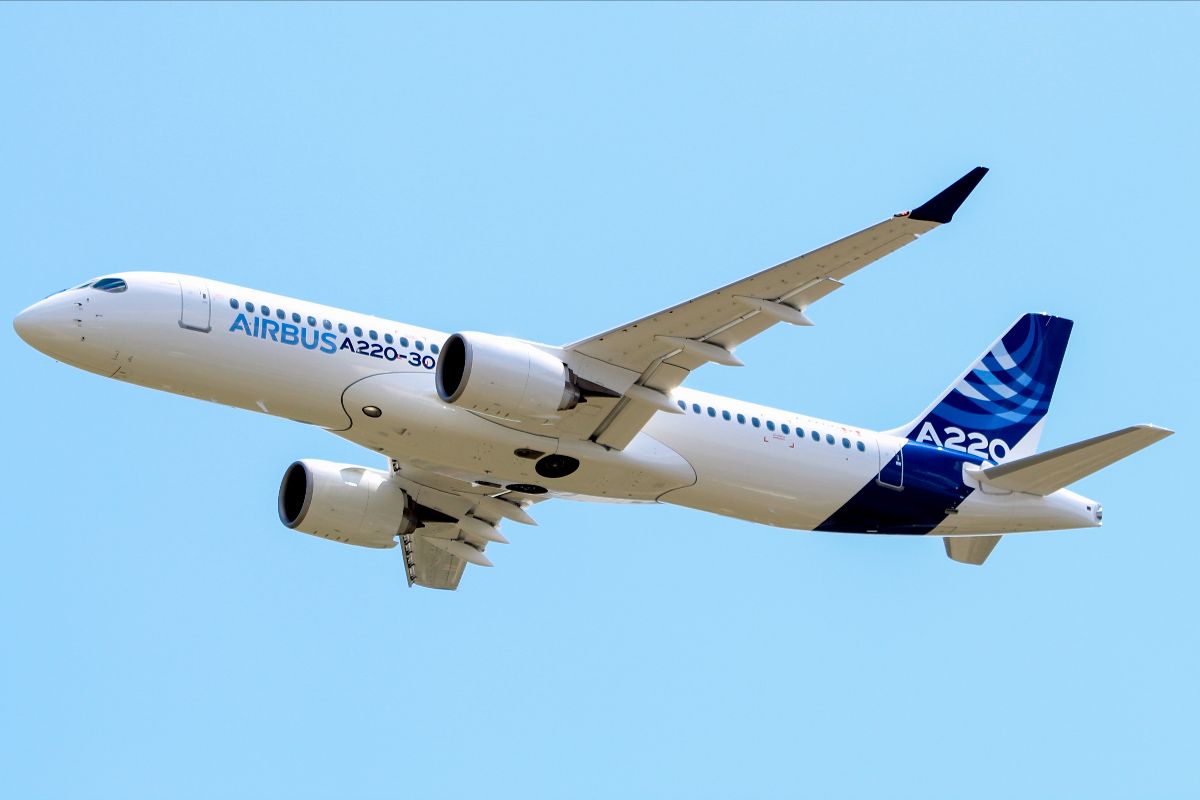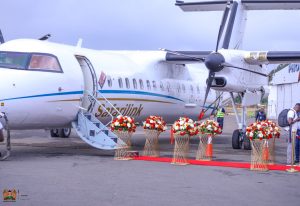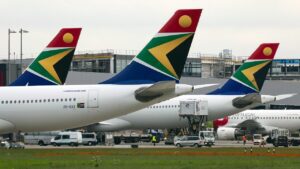Africa’s aviation recovery is well underway, and traffic in the region is picking up fast. International traffic is rebounding, although not to the same extent as domestic, and airlines are busy once more. Despite a later reopening than some parts of the world, African aviation is on course to recover to 2019 levels within the next 18 months, all being well.
Speaking to Jon Howell, CEO of AviaDev, for his Africa Insight podcast, Geert Lemaire, market intelligence and consulting director at Airbus, shone a light on the planemaker’s outlook for the region, and its demand for airplanes. One airplane from the Airbus stable is a clear front runner for new orders, and it’s the post-pandemic golden child, the Airbus A220.
Africa is set for significant growth
Airbus’s latest market outlook, issued in November last year, anticipates a recovery for the African air transport market in late 2023. From there, it’s all up, as the planemaker projects annual growth of traffic of 4%. To support this growth, Airbus believes 1,100 new planes will be needed in Africa, just 30% of which will be replacements for existing aircraft, while 70% will go towards growth.
In terms of what airplanes will be needed, Airbus has been firm in its outlook. Over 800 of the 1,100 new airplanes will be in the ‘small’ aircraft category – that is, aircraft of 100 – 220 seats. That’s all of the A320 family of jets, as well as the Airbus A220.
Driving this growth is the move in Africa to adopt a more open and freer environment. Free trade, free movement of people and the ever-elusive Single African Air Transport Market (SAATAM) will bolster demand, as will rising populations, GDP and wealth in many African countries.
Discussing where growth will happen, Lemaire noted,
“There’s two kinds of growth … we have, first of all, organic growth, which is simply the growth of the networks as they exist today – traffic picking up on the routes that are already served. Next to that, and where we actually see a significant potential, especially for the A220, is indeed the creation of new routes.”
Unserved city pairs
Airbus does much research into where there is the potential for more aviation activity. Part of this research looks at unserved connections, where passenger demand already exists but is not served by a direct flight.
Lemaire sees a huge amount of this in Africa, particularly in regional flying, with pre-COVID intra-African connectivity hovering at about 12% of the overall traffic contribution. By 2040, Airbus believes this will rise to 20%, and it’s these unserved city pairs that will drive that increase.
“What we typically find is, indeed, city pairs connecting cities in South Africa to West Africa, between South Africa and the eastern part of Africa, and also to a smaller extent between West Africa and North Africa. So we have city pairs, for instance, Johannesburg to Abidjan, Cape Town to Accra, Cape Town to Lagos, Cape Town to Zanzibar – to just name a couple of them – which clearly show the potential for the development of future direct routes, but that, unfortunately, today are not served yet.”
In the past, routes calling for six hours in the sky typically attracted the widebody segment, in a bid to give passengers more comfort on the long flight. But these unserved city pairs do not have the demand level to support a 300+ seat aircraft.
Airbus believes that the A220 is the perfect fit for launching some of these underserved routes, and connecting these in-demand city pairs in a logical, step-by-step manner. Lemaire noted,
“[The A220s] have the performance to serve these kinds of routes. They have definitely the comfort onboard, because the comfort you find on an A220 is typically what you get a widebody aircraft, or even better. As such, we certainly have a lot of opportunities to open these routes. You don’t have a massive capacity, and you can serve these routes on a decent frequency.”
Lemaire mentioned the ‘route planner’s mantra’, which is to add frequency before increasing capacity. When the time does come to increase capacity, he believes the pairing of the A220-100 and the A220-300 will allow African operators to scale up in a gradual, manageable way.
To hear more from Airbus and other OEMs on the future of African aviation, don’t miss the AviaDev Africa Route Development Conference 2022. Taking place in Cape Town from June 29th to July 1st, this is the sixth edition of the conference where airlines and airports get together to collaborate and make changes for a better-connected Africa. Head to the website for more information.
Source: Simple Flying






